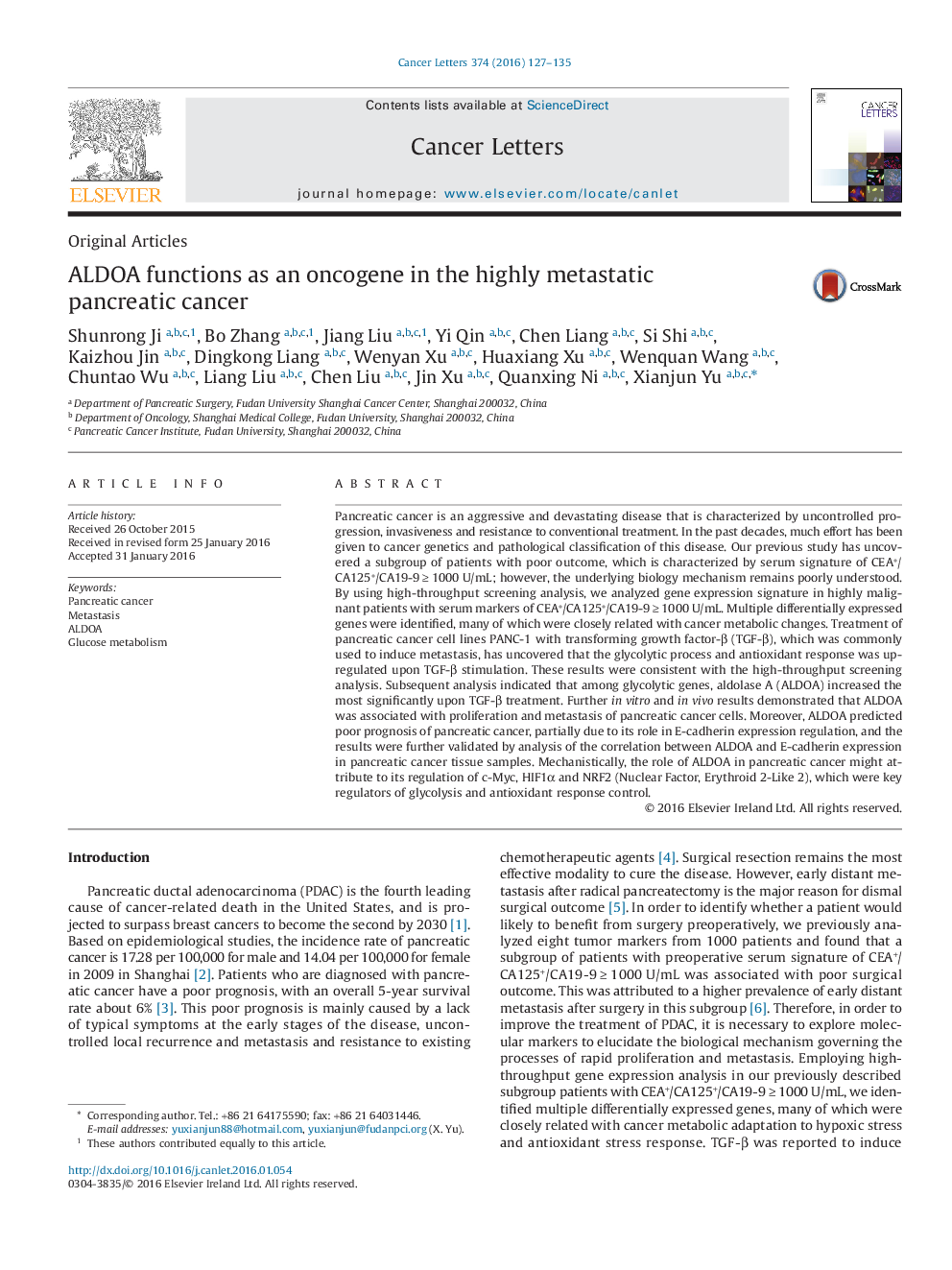| کد مقاله | کد نشریه | سال انتشار | مقاله انگلیسی | نسخه تمام متن |
|---|---|---|---|---|
| 2112358 | 1084368 | 2016 | 9 صفحه PDF | دانلود رایگان |

• Metabolic genes are closely involved in the pancreatic cancer subgroup patients with CEA+/CA125+/CA19-9 ≥ 1000 U/mL.
• ALDOA promotes proliferation and metastasis of pancreatic cancer cells.
• ALDOA closely related with the HIF1α and c-Myc signaling pathway.
Pancreatic cancer is an aggressive and devastating disease that is characterized by uncontrolled progression, invasiveness and resistance to conventional treatment. In the past decades, much effort has been given to cancer genetics and pathological classification of this disease. Our previous study has uncovered a subgroup of patients with poor outcome, which is characterized by serum signature of CEA+/CA125+/CA19-9 ≥ 1000 U/mL; however, the underlying biology mechanism remains poorly understood. By using high-throughput screening analysis, we analyzed gene expression signature in highly malignant patients with serum markers of CEA+/CA125+/CA19-9 ≥ 1000 U/mL. Multiple differentially expressed genes were identified, many of which were closely related with cancer metabolic changes. Treatment of pancreatic cancer cell lines PANC-1 with transforming growth factor-β (TGF-β), which was commonly used to induce metastasis, has uncovered that the glycolytic process and antioxidant response was up-regulated upon TGF-β stimulation. These results were consistent with the high-throughput screening analysis. Subsequent analysis indicated that among glycolytic genes, aldolase A (ALDOA) increased the most significantly upon TGF-β treatment. Further in vitro and in vivo results demonstrated that ALDOA was associated with proliferation and metastasis of pancreatic cancer cells. Moreover, ALDOA predicted poor prognosis of pancreatic cancer, partially due to its role in E-cadherin expression regulation, and the results were further validated by analysis of the correlation between ALDOA and E-cadherin expression in pancreatic cancer tissue samples. Mechanistically, the role of ALDOA in pancreatic cancer might attribute to its regulation of c-Myc, HIF1α and NRF2 (Nuclear Factor, Erythroid 2-Like 2), which were key regulators of glycolysis and antioxidant response control.
Journal: Cancer Letters - Volume 374, Issue 1, 28 April 2016, Pages 127–135